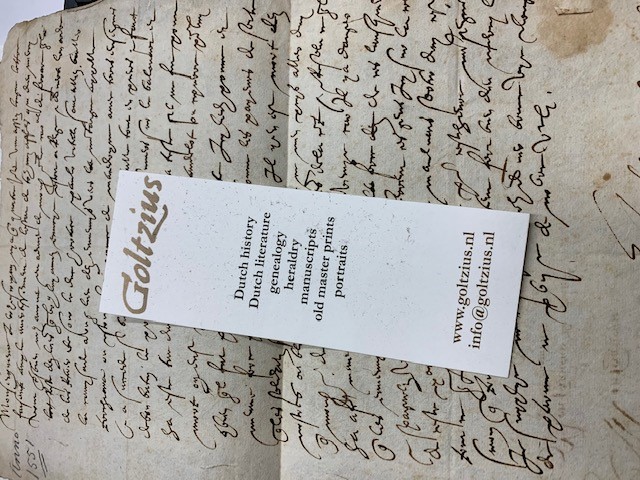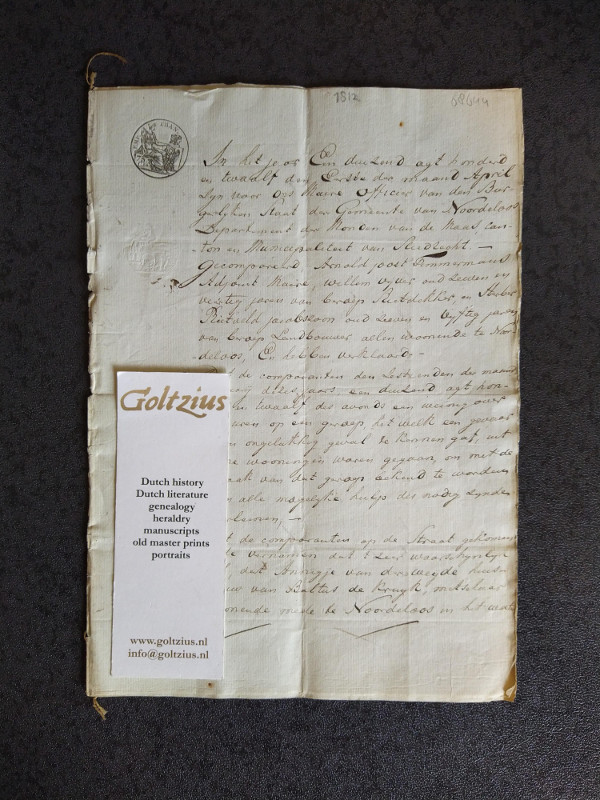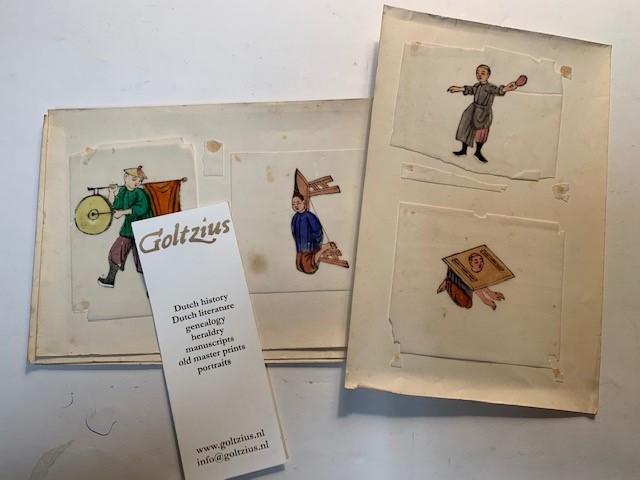Beschrijving
Manuscript, 2 pages., 4°, concerning the fight between Farnese and Charles V. Le duc Horace and Paulo Vitelli are mentioned as is le prince de Macedoyne. Important letter for the history of this age. Ottavio Farnese (9 October 1524 – 18 September 1586) reigned as Duke of Parma and Piacenza from 1547 until his death and Duke of Castro from 1545 to 1547 and from 1553 until his death. The Farnese family lost the dukedom of Parma to the church. Ottavio tried to induce the governor of Parma to give up the city to him, but met with no better success; however, on the election of Giovanni Maria Ciocchi del Monte to the papacy as Julius III, the duchy was conferred on him in 1551. This did not end Farnese's quarrel with the Emperor Charles V, for Gonzaga refused to give up Piacenza and even threatened to occupy Parma, so that Ottavio was driven into the arms of France. Julius III, who was anxious to be on good terms with Charles V on account of the Council of Trent which was then sitting, ordered Farnese to hand Parma over to the papal authorities once more, and on his refusal hurled censures and admonitions at his head, and deprived him of his Roman fiefs, while Charles did the same with regard to those in Lombardy. A French army came to protect Parma, the War of Parma broke out, and Gonzaga at once laid siege to the city. But the duke came to an arrangement with his father-in-law, by which he regained Piacenza and his other fiefs. The rest of his life was spent quietly at home, where the moderation and wisdom of his rule won for him the affection of his people.At his death in 1586 his only legitimate son Alessandro succeeded him. François de Tournon (1489 in Tournon-sur-Rhône – 1562 in Saint-Germain-en-Laye) was a French Augustinian monk, an archbishop, diplomat, courtier, and cardinal. From 1536 he was also a military supply officer of French forces operating in Provence, Savoy and Piedmont. In the same year he founded the Collège de Tournon. For a period he was effectively France's foreign minister. He was a prominent leader in the fight against Lutheranism and Calvinism, especially at the French Royal Court, and what he perceived as the growing Huguenot menace to both doctrinal orthodoxy and the social order. He took a prominent role in the Estates General of 1560, the Colloquy of Poissy and the Colloquy of Saint-Germain in 1562. He participated in the papal conclaves of 1534, 1549, and 1559. M9930




